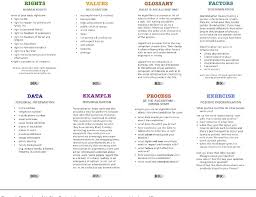Examples of Decision Making Skills
Decision making is an essential skill that plays a crucial role in both our personal and professional lives. Having strong decision making skills can lead to positive outcomes and help us navigate through various challenges effectively. Here are some examples of decision making skills:
- Analytical Thinking: Being able to analyze situations, gather relevant information, and evaluate options before making a decision.
- Critical Thinking: Evaluating the pros and cons of different choices objectively and logically.
- Problem-Solving: Identifying issues, brainstorming solutions, and selecting the best course of action to address the problem.
- Risk Management: Assessing potential risks associated with each decision and developing strategies to mitigate them.
- Time Management: Making decisions efficiently within a given timeframe to achieve desired outcomes.
- Emotional Intelligence: Considering emotions and understanding their impact on decisions while maintaining composure.
- Ethical Decision Making: Making choices that align with moral values and ethical principles.
- Adaptability: Being flexible and open-minded when circumstances change, adjusting decisions accordingly.
Developing these decision making skills can enhance your ability to make sound judgments in various aspects of life. Practicing these skills regularly can improve your confidence in decision making and lead to better outcomes in the long run.
6 Essential Tips for Enhancing Your Decision-Making Skills
- Consider all available options before making a decision.
- Evaluate the potential risks and benefits of each option.
- Seek advice from others who have experience or expertise in the matter.
- Trust your instincts but also rely on data and information to support your decision.
- Be prepared to adapt and make changes if needed based on new information or developments.
- Reflect on past decisions to learn from both successes and failures.
Consider all available options before making a decision.
When honing decision-making skills, it is crucial to consider all available options before reaching a conclusion. By thoroughly exploring and evaluating the various choices at hand, individuals can make informed decisions that are more likely to align with their goals and values. Taking the time to assess all possibilities can lead to better outcomes and help individuals feel confident in the decisions they ultimately make.
Evaluate the potential risks and benefits of each option.
When honing decision making skills, it is crucial to evaluate the potential risks and benefits of each option. By carefully assessing the risks involved and weighing them against the potential benefits, individuals can make more informed decisions. This approach allows for a comprehensive understanding of the consequences associated with each choice, enabling individuals to select the option that aligns best with their goals and values. Taking the time to consider both the risks and benefits ensures a more thoughtful and strategic decision-making process, leading to more favorable outcomes in the long run.
Seek advice from others who have experience or expertise in the matter.
Seeking advice from others who have experience or expertise in a particular matter is a valuable decision making skill. Consulting with individuals who have faced similar situations can provide valuable insights, different perspectives, and additional information that can help you make a more informed decision. By tapping into the knowledge and expertise of others, you can benefit from their wisdom and guidance, ultimately leading to better decision outcomes. Embracing this approach demonstrates humility, openness to learning, and a willingness to consider different viewpoints before making a final choice.
Trust your instincts but also rely on data and information to support your decision.
When honing decision-making skills, it is essential to strike a balance between trusting your instincts and utilizing data and information to bolster your choices. While instincts can offer valuable insights based on intuition and experience, incorporating factual data and information provides a solid foundation for making informed decisions. By combining intuition with evidence-based reasoning, you can enhance the quality of your decision-making process and increase the likelihood of achieving successful outcomes. Trusting your instincts while also relying on data ensures a well-rounded approach that considers both gut feelings and objective analysis in making effective decisions.
Be prepared to adapt and make changes if needed based on new information or developments.
It is crucial to be prepared to adapt and make changes when necessary based on new information or developments when honing decision-making skills. Flexibility and openness to adjusting decisions in response to changing circumstances are key traits of effective decision makers. By remaining receptive to new information and being willing to modify your course of action as needed, you can improve the quality of your decisions and increase the likelihood of achieving successful outcomes. Embracing adaptability as a core aspect of your decision-making process can lead to more informed and strategic choices in both personal and professional situations.
Reflect on past decisions to learn from both successes and failures.
Reflecting on past decisions is a valuable practice that can help individuals learn from both their successes and failures. By taking the time to analyze previous choices and their outcomes, one can gain insights into what worked well and what could have been done differently. This process of reflection not only allows for personal growth but also enhances decision making skills by providing valuable lessons that can be applied to future situations. Embracing both successes and failures as learning opportunities can ultimately lead to more informed and effective decision making in the long run.


